At Canada’s prestigious Honens Competition, the young US-American Isidore Quartet partnered with three remarkable finalists in performances that demanded equal parts sensitivity and self-effacement.
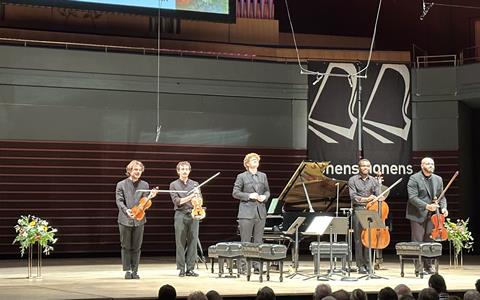
Read more Featured Stories like this in The Strad Playing Hub
For a string quartet, sharing the spotlight with fellow chamber musicians is second nature – but not usually in circumstances like this. The New York City-based Isidore Quartet took the stage last night (23 October) for the chamber-music final of the 2025 Honens International Piano Competition, held at the Jack Singer Concert Hall in the Werklund Centre, downtown Calgary, Alberta. Established in 1991 and now one of Canada’s most prestigious international music events, Honens seeks to identify and support ’Complete Artists’ – pianists whose musicianship blends virtuosity with imagination, empathy and a deep sense of communication.
The competition began on 15 October with ten semifinalists, each performing a solo recital and a chamber music round with cellist Rachel Mercer. Now down to three finalists, Honens concludes with two final rounds – chamber music and, in the final round tonight, concertos – with the gold, silver and bronze winners to be announced at the end of this evening’s concerto performances.
On Thursday night, the Isidore – violinists Adrian Steele and Phoenix Avalon, violist Devin Moore and cellist Joshua McClendon – partnered with each pianist in a major Romantic quintet: Élisabeth Pion in César Franck’s op. 14 in F minor, Carter Johnson in the F minor Quintet of Brahms and Anastasia Vorotnaya in Dvořák’s op. 81 quintet in A major. With only a few hours for rehearsal, the quartet’s task was to support and adapt, finding the right balance between leadership and deference in performances that could shape another artist’s future.
Thomas May, The Strad’s US correspondent, spoke with Phoenix Avalon just after the performance about the intensity, flexibility and trust required when a string quartet steps into a piano competition.
You’ve barely had a moment to breathe since coming from the stage – that must be quite an adrenaline flow. How did it feel compared with a regular performance?
Phoenix Avalon: More exhausting! We were playing a lot more notes than usual. The whole vibe of a competition is always more intense.
Had you done anything like this before?
Phoenix Avalon: We played as the chamber music partner at the Busoni Competition in Bolzano, Italy, two years ago [when Arsenii Mun won first prize].
So what were the logistics at Honens – how much rehearsal time did you have with each finalist?
Phoenix Avalon: We had just one two-hour rehearsal each, plus a short sound check. So we let the finalists decide how to use the time. Usually, they want to play through the piece once or twice and stop to fix a few details. But it’s always a very interesting process, because everyone has their own style: some just play it through and tell us what they want to happen; others are more collaborative and ask, ‘Well, what do you guys want to do? Should we do this or do that?’
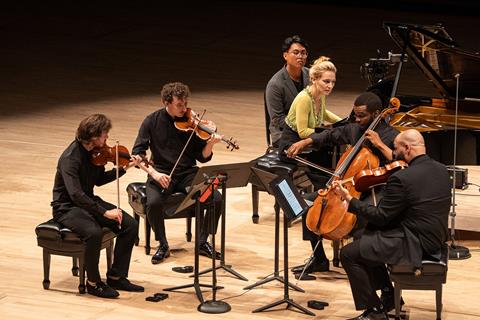
So there’s not a lot of talking through interpretations?
Phoenix Avalon: We do as little talking as possible. We start out from a point of all of us being already prepared, of course. We’ve learnt our parts, the finalists have learnt their parts. So the biggest thing is just having a little bit of time to feel each other out musically and see where that goes. We focus on seeing if we can get into the same energy, the same vibe, when we actually perform together.
Each finalist chose from four familiar piano quintets from the Romantic repertoire. Did these pieces feel different in this context? Were there any surprises for you interpretively?
Phoenix Avalon: It’s always fascinating playing with different artists. With such familiar works, there’s always something fresh to discover. You also notice whether the pianist is thinking in competition mode or approaching it more like a regular performance – with so little time together, it’s revealing to see what they choose to focus on.
Which work felt most at home for Isidore?
Phoenix Avalon: We’ve played all of them, but we’ve played the Brahms the most.
Since this is a piano competition, do you intentionally hold back interpretively to let the finalists lead?
Phoenix Avalon: Yes. In competitions we really let them take control, in rehearsals and in the performance – it was the same at the Busoni. If we had more time, it could be more collaborative, but this is really their show. We don’t want to impose the Isidore version of Brahms, Franck or Dvořák. We want their version to be in the spotlight, with us helping bring it to life as best we can. So we try to take a bit of a back-seat approach.
We want their version to be in the spotlight, with us helping bring it to life as best we can
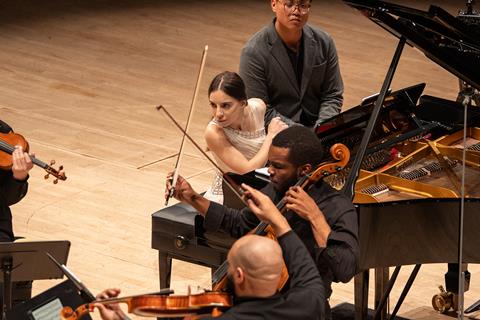
Do you sense each pianist’s personality right away?
Phoenix Avalon: Within minutes. I think they all offered something really wonderful in their own way, and that, in turn, changed our interpretation of the pieces, which was really nice. With Carter Johnson in the Brahms, it was more about thinking of long structure, long types of phrasing, less about rubato or timing issues. Not that it’s just one or the other, but along that spectrum, it was different from the way we’ve played the Brahms in the past. The Franck was more relaxed than we’ve played it before; the Dvořák was very energetic – all of these are also great ways of doing these pieces. There’s no right or wrong with any of these interpretive approaches.
What’s the hardest part of this kind of collaboration?
Phoenix Avalon: Letting go of our habits. We want to highlight their interpretation, so we try to prepare with open minds and no preconceptions. If you’ve played a piece many times, it’s easy to default to your own way. Allowing the finalists to shine can be a real challenge.
The Isidore Quartet knows up close what this kind of competition pressure feels like – you faced it at Banff in 2022. Did tonight trigger flashbacks?
Phoenix Avalon: Definitely. We were joking backstage just before coming out, when they showed short video portraits of each finalist, that it feels a bit like The Hunger Games. That was what it felt like at Banff, too. We actually went back to Banff this past summer to play the Brahms B-flat Sextet in one of the rounds. These events are always packed and the audience is incredibly involved. So it really does make for an intense atmosphere.
What’s special about Honens?
Phoenix Avalon: It’s very friendly – and that also reminds me of Banff. Everyone we met, from the finalists to the staff, was warm and open. The competitors support each other; we saw some of the semifinalists in the audience cheering their colleagues. It felt more like a festival than a contest. Yes, there’s a winner, but everyone gains something from the experience.
What’s your main takeaway from this experience at Honens?
Phoenix Avalon: It’s wonderful collaborating with new people – pianists who aren’t Jeremy Denk yet but could be in ten years, or maybe even next year. You meet fresh minds, exchange ideas and feel that energy from the next generation – even if some of the finalists are technically older than me.
A video of the Finals I round with the Isidore Quartet can be viewed here.
Read: Violinist, cellist and string quartet receive Avery Fisher Career Grants
Read: How to win without winning - Competitions: The competitive advantage
Review: Isidore Quartet scoops victory at 2022 Banff International String Quartet Competition
Discover more Featured Stories like this in The Strad Playing Hub

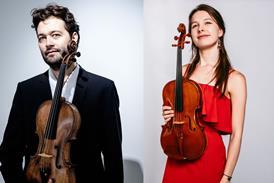
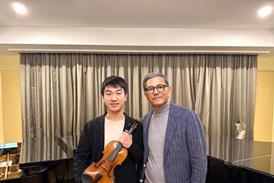
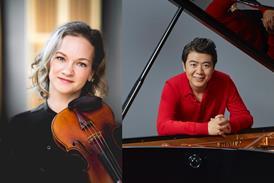
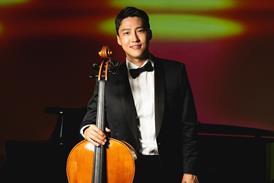
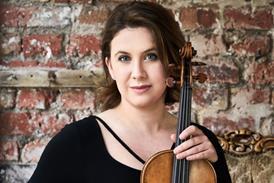




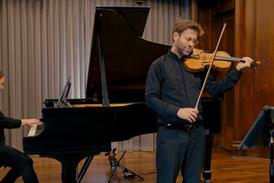

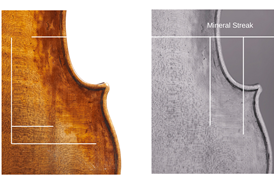
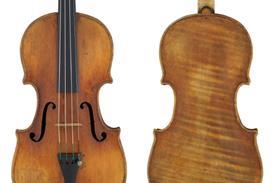
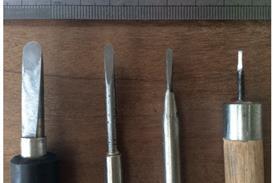
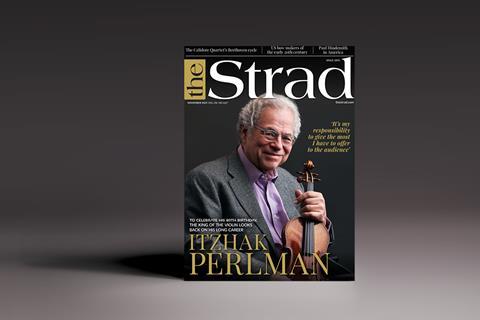




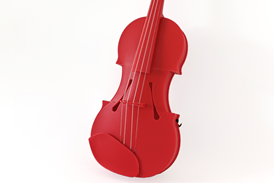
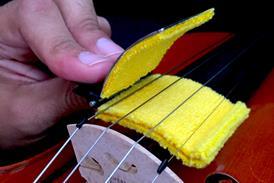
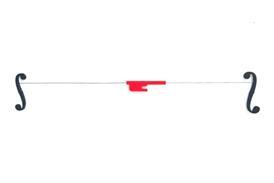



















No comments yet